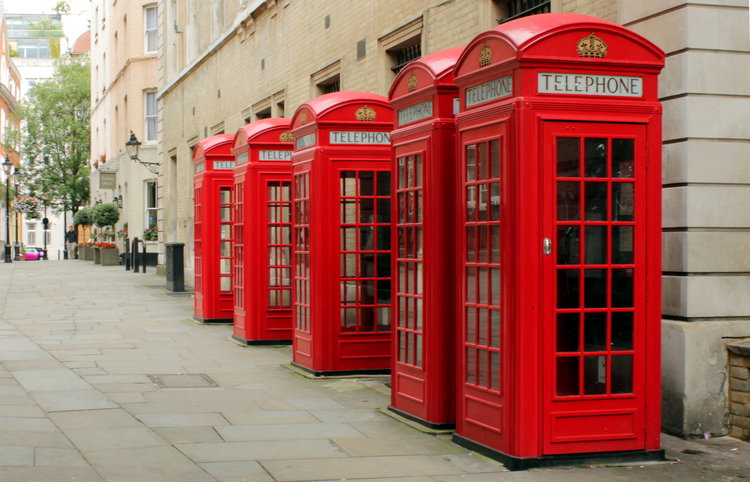One of the recent sociological studies showed that the average Briton spends ten months of his adult life on mobile phone conversations. In 2008, Prime Minister Gordon Brown periodically called citizens who sent written concerns to the government, expressing their attitude to the state issues. The Prime Minister read the letters with great interest. He liked to communicate with voters who have taken the trouble to contact him. It is not difficult to reach anyone in a moment today, while previously it took hours, days or even months.
Nowadays, in every major region of the UK, part of the telephone numbers are reserved for films and television shows. This is done to ensure that the number belonging to the real subscriber will not accidentally be announced. Major companies reserve their own public and secured telephone numbers to communicate with clients. Some of them even establish call-centers to promote and sell their goods or services. In this case, companies prefer using high-speed private communication services as offered by sip provider like didlogic.
How It Started
Britain has become addicted to communicating by electronic communication since native Scotland, Alexander Graham Bell, began to invent the telephone. By the 1930s, the British were already using in the iron telephone booths, and by the 1960s private phones appeared in many houses.
Legendary Red Booths
Obviously, the legendary red telephone booths may soon become history. They are already on the verge of extinction, as they are partially replaced by modern glass cabins with wireless Internet access. The rapid development of mobile telephony makes their disappearance even faster. Between 2002 and 2008, 30 percent of all telephone booths were removed from the streets of the UK, and 60 percent of those that remained did not generate income.
Losing the Monopoly
BT was the dominant company in the British telecommunications market. Previously, it was a part of the Postal Office that in 1981 was renamed to British Telecom and soon was privatized. In fact, BT lost its monopoly on telephone services in 1982, but it still controls most of the wired telephone market in Britain. Despite the fact that British Telecom is a private company, according to the law, it is responsible for the telephone installation of all UK addresses and provides the entire country with street telephones.
Keeping in Touch
Of course, we live in the era of mobile telephony. Mobile phones are owned by 115 percent of Britons (many have more than one device). Considering the EU countries, this figure is 94 percent, while in the US – 77 percent. The largest mobile phone operators in the UK are:
- Vodafone;
- T-Mobile;
- Orange;
- EE.
The British company Vodafone is the world’s largest mobile operator; its market capitalization is estimated at 75 billion pounds.
The use of mobile phones is growing and expanding around the world influencing the dismantle of state monopolies and the emergence of private telephone companies. However, the Era of mobile phones is ending, while Internet communications rapidly replace them.



